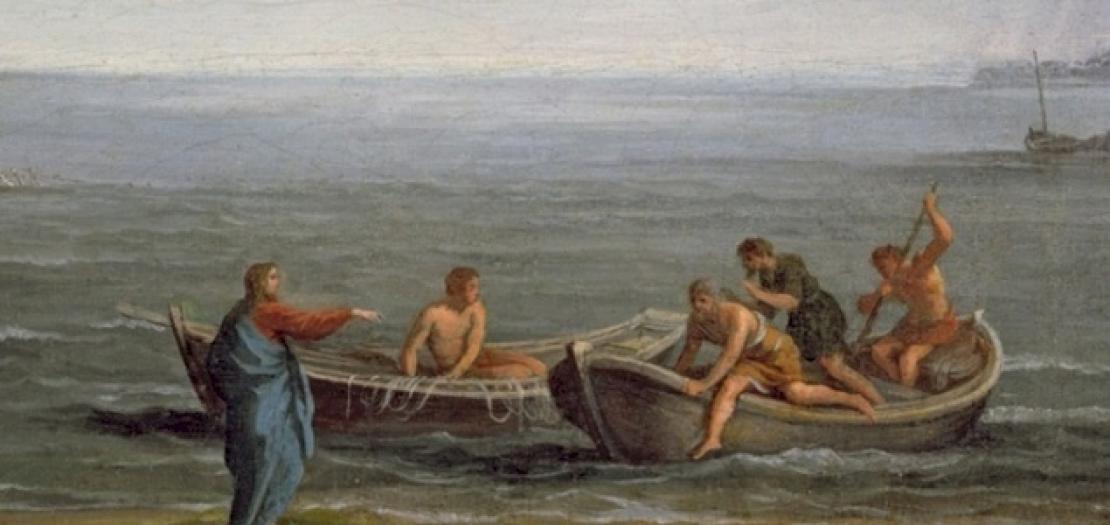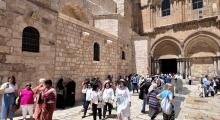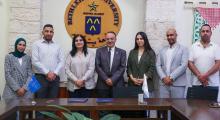Issued by the Catholic Center for Studies and Media - Jordan. Editor-in-chief Fr. Rif'at Bader - موقع أبونا abouna.org

Following is the text of the meditation by Latin Patriarch of Jerusalem His Beatitude Pierbattista Pizzaballa for the third Sunday in Ordinary Time, year A, January 22, 2023:
To enter the passage of the Gospel that today’s Liturgy places before us, we begin with a verse from the first reading. The Gospel starts with a quotation from the Book of Isaiah that is reported entirely in the first reading: “For the yoke that burdened them, the pole on their shoulder, and the rod of their taskmaster you have smashed, as on the day of Midian.” (Is 9:3)
It is an oracle written for an extremely difficult and dramatic time in biblical history when the northern kingdom ended under cruel Assyrian domination. The passage of Isaiah, in turn, refers to another difficult moment of biblical history, recorded in Chapter 6 of the Book of Judges, in the time of Midian, an oppressor of the tribes of Israel in that period.
The evangelist refers to those biblical periods of oppression in the Old Testament to highlight that the time when Jesus begins to operate the work of Salvation is also a time of oppression, as has happened many times over the centuries: nothing new. The history of mankind seems incapable of generating anything other than this, abuse of power and violence, from generation to generation.
The reference to Midian can be helpful for us to understand how Jesus enters this difficult time. Chapter 6 of the Book of Judges recounts the story of Gideon, called by God to save his people despite being the least in the house of his father, and despite his family being the poorest in Manasseh (And he said unto him, Oh Lord, wherewith shall I save Israel? behold, my family is the poorest in Manasseh, and I am the least in my father’s house.” Judges 6:15) The story continues with the account of the clash between the Israelites and Midianites (Judges 7), where it is clear that God is the One who saves and gives the victory, and not the Israelites by their own strength.
And so, in today’s Gospel passage we can retrace the same dynamic. Jesus, first of all, begins His ministry with an invitation that must be understood precisely in the light of what was said: “be converted.” (Mt. 4:17)
What saves from oppression and violence is man’s ability to be converted, to change his mentality. And the mentality must be changed exactly as it had been for Gideon, who was called to be converted from the idea that God saves through force. Instead, it is not so.
God saves through littleness, by becoming near, by becoming a neighbor, taking on limitation, putting Himself in an attitude of obedience and meekness. Not by power, not responding with violence to violence, but choosing other ways. Therefore, Jesus can say that the Kingdom of God is at hand. (Mt 4:17)
Furthermore, as in the time of Midian, God saves by choosing a man, choosing him from among the poor, and thus begins this time of salvation that Jesus came to inaugurate.
Passing along the shores of the Lake of Galilee, Jesus sees a couple of brothers intent on their work, and He calls them to follow Him. (Mt 4:18-22)
In this manner, salvation is accomplished, through following, namely, through that experience where we cease to be the center, the center of gravity of our life and allows the Other to guide our existence.
It is a question of love and trust.
And so it happens that the small group of weak men who accept this new adventure form a first outline of a different community, a new fraternity, in which we are together not because we choose each other in virtue of some affinity, but because all have been chosen by the Lord who has moved through the life of each one.
A final note: the invitation from Jesus to follow Him is followed by a promise.
Not the promise of a reward, not the promise of a trouble-free life.
“I will make you fishers of men.” (Mt 4:19)
The underlying promise to each person called is that the life of the one called is fulfilled in mission. A life that does not end in the narrow horizons of its own story, but takes on universal dimensions, a life that weds itself with the history of the people of its time.
That is the promise to which God remains faithful.
+Pierbattista







